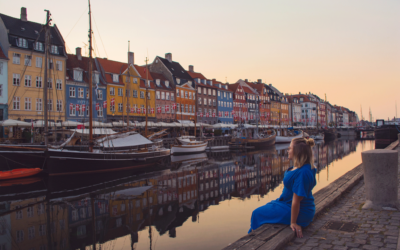In recent months, Spain has seen a wave of protests against the negative effects of mass tourism. From the Canary Islands to Barcelona and Mallorca, residents are making their concerns clear about the impact on their environment and local economies.
Hungerstrike in Tenerife
The protests began with a high-profile action in Tenerife. Six activists held a hunger strike for 20 days to draw attention to the problems caused by mass tourism. Among other things, they demanded a more sustainable tourism model and a halt to new construction plans by hotel chains. The regional government paid little attention to this action, but subsequent protests in the mainland and Mallorca may have been a result of this first protest.
This is not the first protest in Tenerife, in August 2023 locals already took to the streets en masse to protest against rising house prices, water shortages due to resort water use, poor working conditions in the tourism sector and natural damage caused by tourism.
Mass demonstration in Barcelona
Indeed, thousands of demonstrators marched through the streets of Barcelona in July. With slogans such as ‘Tourists go home’ and ‘Barcelona is not for sale’, they expressed their frustration at rising house prices and increasing unlivability for the city’s locals. Some protesters even went so far as to spray tourists with small water pistols in the Las Ramblas district.
Barcelona’s mayor has since announced that more than 10,000 tourist flat rentals will be banned by 2028, in an attempt to relieve the local housing market.
Barcelona is also not the first time there have been protests against mass tourism. The first protests were in 2014/2015 and mainly focused on the housing market problems caused by holiday flat rentals. Since then, there have been protests almost every year and since the return of tourism after the pandemic, frustrations seem to be mounting and focusing more on mass tourism as a whole.
Beach occupation in Mallorca
The most recent protest took place in Mallorca, where over a 100 protesters ‘occupied’ the popular S’Arenal beach. Under the slogan ‘Occupy Our Beaches’, they demanded that locals can also enjoy their own environment, which they say is being taken over by tourists. Mallorca is known for its beautiful beaches and turquoise waters.
Mallorca received a record 14 million foreign visitors in 2023, and figures for 2024 look set to surpass this record. Protesters point to the wider consequences of mass tourism, including the disappearance of local culture, rising living costs and deteriorating public services.
So despite a ban on Airbnb in Palma de Mallorca, implemented after protests in 2018, mass tourism problems are still the order of the day on the Spanish island.
Authorities’ response
In response to the growing unrest, the Balearic government has set up a joint committee with representatives from the tourism industry and civil society. This commission will work on ways to reduce the impact of tourism. Measures include tighter controls on illegal tourist accommodation, with fines of up to €80,000 for violations.





0 Comments